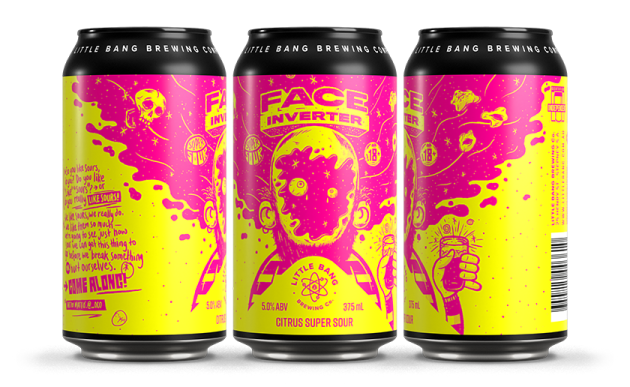It was serendipity that put craft brewer Little Bang in contact with UplinkMe, a start-up ISP in Adelaide. Joshua Gliddon writes about how the brewer went from losing connectivity if it rained to being able to provide free Wi-Fi for up to 2000 users. This article was first published in Food & Drink Business April 2021.
The best internet service provider is one you never need to call, says Ethan Blaine, director and co-founder of UplinkMe, a start-up ISP in Adelaide, South Australia. But it was a phone call that saw UplinkMe solve South Australian craft brewer Little Bang’s communication problems. While not a service call, Blaine was actually looking to book a table at Little Bang’s 290-person capacity brewhouse, it was good timing.
“We needed a place for our inaugural meeting,” says Blaine. The start-up’s operations manager suggested Little Bang, a move seconded by its network engineer, mainly because it was his local. So, in late May 2020, right in the middle of COVID-19, Blaine called Little Bang to book his table of ten (lockdowns were a little less of an issue in Adelaide than other capital cities). Ryan Davidson, Little Bang co-founder and director of sales and brand strategy answered the phone.
“Ryan asked me what we do and when I told him we were an ISP, he said it was fortuitous I had rung. He and his business partner were completely sick of the ongoing issues they had with Telstra,” Blaine says.
Rainy connectivity
Founded seven years ago in a garage as a hobby by Ryan Davidson and Filip Kemp, Little Bang has grown into one of South Australia’s most prominent and successful independent craft brewers.
The company now has a 1000 square metre warehouse in Adelaide, with a full kitchen and a 290-person capacity. Since it began, Little Bang has brewed more than 50 beers. Initially it was keg-only, but now packaged beer makes up roughly 70 per cent of its production.

Little Bang is a digitally focused, cloud-centric business. Everything from the tills to GSuite, and the CRM system used by the sales reps relies on the internet.
When the company moved into its currently location, that’s where the problems occurred. It was relying on a single Optus 4G SIM connection and one handset located upstairs to keep the company going, and it would regularly drop out.
The company couldn’t get an NBN connection from any of the big players.
“We would lose internet connectivity if it rained,” says Mr Davidson. “Filip and I are no slouches when it comes to tech – we both come from games development backgrounds – and even though the building could be technically connected [to the NBN] it was just too hard for the big internet companies. We went back and forth with Telstra for eighteen months.”
Cue Blaine’s phone call. Davidson said the company spoke on their level and quickly got to work.
The UplinkMe team installed two kilometres of ethernet cable into the warehouse and three Wi-Fi access points to handle 2000 concurrent users (Little Bang offers free Wi-Fi to customers).
“I don’t think they have had a single drop out since we installed the fibre to the curb connection,” says Blaine.
“Once it was done, we jumped for joy,” adds Davidson. “The way it worked and the way UplinkMe worked is beyond our wildest dreams.”
All of which goes to show, the best ISPs might be the ones you never need to call for help, but sometimes a phone call, out of the blue, can make all the difference to the life of a business.






